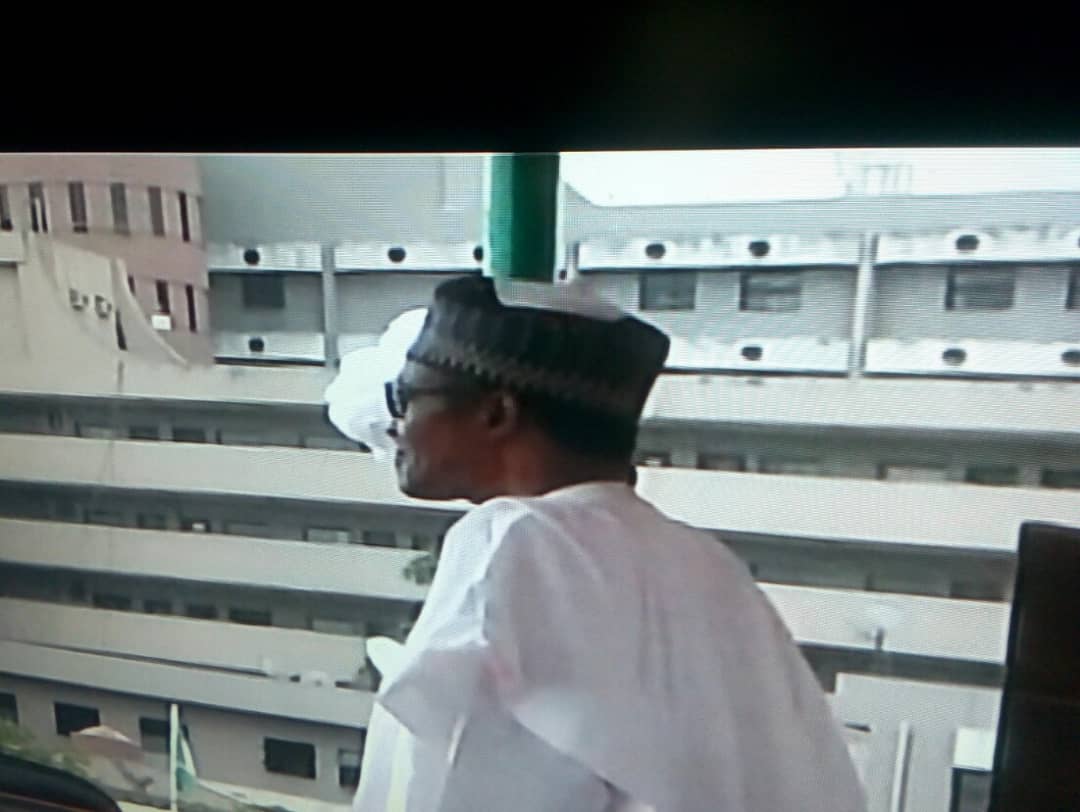Economy
Zainab Ahmed: A General missing in action

By Uche Chris
In military tradition, a general does not miss in action, that is to say, in battle. It is the worst thing that could happen to an army and country. For a general to miss in action is the height of leadership failure and corporate defeat. Lives are sacrificed to ensure that he is recovered.
Such a possibility has far reaching implications both for the morale of the troops and the prestige of the nation. The recent death of President Idris Derby of Chad in battle is a typical case and the crisis it has created in the country and other neighbouring countries demonstrates its consequences.
In contemporary government, this plays out in a different way. In every democratic government the minister of finance is about the highest ranked appointed public officer, who is almost playing the role of a general during war, because he/she is in charge of the public purse which determines the health of the economy.
As the exchequer, he/she controls the livewire of the country; and the success or failure of any government depends on the state of the economy, which affects directly every citizen of the country.
With increasing economic uncertainty and instability in global economy, appointees into the office of finance minister are generally deliberately chosen, and should be persons of strong convictions, resolve and outspoken, not a lily-livered and amateurish crony that places loyalty to the appointing authority over common sense and personal integrity. It is even worse when such a minister is hardly heard and has no opinion on any economic and fiscal policies of government.
The drama at the senate Armed services committee hearing which expected the presence of the finance, Mrs. Zaniab Ahmed, truly is indicative of the trouble in the economy. Was she evading exposure and responsibility, or simply ignoring the legislators? Ali Ndume, chairman of the committee, minced no word in calling her out.
Also the answer may be in the discrepancy between the claimed financial releases to the armed forces and records of the ministry of defence which showed a short-fall of N50 billion. While the ministry of finance claimed to have released N194 billion, defence records showed N140 billion over three years.
So where did the N50 billion go? Worse still for the finance minister the allegations that over N10 trillion has been spent by this government on insecurity with little to show for it is enough to bring down the government.
Mrs. Zanaib Ahmed as Nigeria’s finance minister is symptomatic of the dire strait of the economy and her obvious failures an exemplification of the economic downturn in the country. Beautiful, soft spoken, unassuming, and inconspicuous, she cuts the best image of a loving matriarch, but is hardly the best hand for the job of finance minister. She not only lacks convictions but is unconvincing on serious economic issues.
Unlike her predecessor, Mrs. Kemi Adeosun, who was almost fanatical about her brief she often spoke her mind in defence of her convictions; Ahmed is simply marginal to the job and scarcely adds value. She would have been appropriate as a women affairs minister rather than finance.
She has never been seen or heard to take any personal position on any issue, be it for or against. Adeosun was the first to raise the alarm on the revenue challenge of our debt as early as 2017, and warned of the need to be cautious in our borrowing. To Ahmed we should continue to borrow since government has/wants to borrow.
Ahmed’s challenge is the demonstration of the Peter’s principle: A person being promoted way out of their competence and like fish out of water. And combining the portfolios of finance and budget and planning – two strategic and separate ministries – is an over-kill; and the state of the economy is eloquent proof of how far she has led us.
There may not have been any doubt about her ability as a junior minister under Adeosun; it seems she did not learn the ropes long enough to be thrust into the murky waters of financial advocacy and management.
It is difficult to understand how a finance minister could only be seen but rarely heard, especially when her house is on fire. What has she ever said about the economy other than that our debt per GDP is normal or low, and we should continue to borrow, when everybody in the world knows that the country in digging itself deeper into a hole.
What is her opinion on the cause of the economic crisis, except that it is due to collapse in oil prices and Covid 19, which many people know is only the symptom? Does she have a position on the way forward and out of the economic crisis? I have not heard; maybe you have?
This is certainly regrettable given the fact that she is the chief economic and financial spokesperson and defender of government fiscal policies. A finance minister is both an advocate and crusader, because she must convince the people about the altruistic and well-meaning nature of public policies to buy into them; a finance minister who cannot boldly and intelligently defend policies beyond tame rationalization and excuses, is excess to requirement, as they say in sports.
It is not because she is a woman; we have had three consecutive women in the post, and the other two – Adeosun and Dr. Okonjo Iweala – acquitted themselves creditably. It is not that she is an accountant, Adesoun is also. It is simply a function of orientation and capacity.
The orientation is docility and servility to authority; while the capacity is bean-counting and routine accounting. There is no broad knowledge of the theoretical framework of economic structure, organization and management.
Although there is very little to recommend any of the ministers in the present cabinet of President Buhari, but that of finance particularly sticks out like a sore thumb. As the coordinating minister, being in charge of finance, budget and planning, she is the most powerful, and should speak for the rest of them. But hers is power without responsibility, as everybody seems to be an island to themselves.
It is this failure that has created the lacuna, which the Central Bank appears to be filling given the fact that nature abhors a vacuum. It is an economic management error for the CBN to be the one not only running the economy but also speaking for it in economic and financial issues.
It is the tail wagging the dog rather than otherwise. The economy is in trouble, which is simply on auto pilot, because of this lapse in leadership, and unless it is redressed, it may never get better,
.










